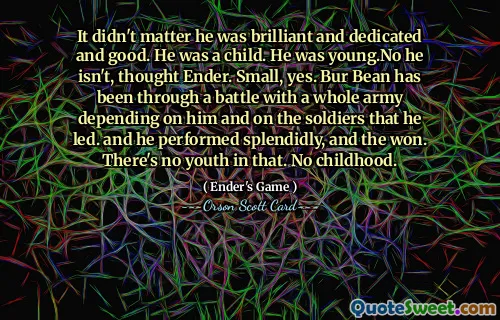
He was, out of all sight {as I remember him}, the nicest boy that ever spun a top or broke a window.
This quote evokes a nostalgic reflection on childhood innocence and the complex nature of our early perceptions of goodness. The speaker vividly remembers a boy who, despite perhaps mischievous inclinations—such as spinning tops or breaking windows—stood out as the nicest among all seen. It highlights how innocence and moral judgments are often intertwined with playful misadventures, which, in the innocence of youth, might be seen as endearing rather than truly problematic. This sentiment touches on the universal memory of childhood innocence, where the lines between mischief and kindness blur, and the perceived good in a person is often tied to their playful or carefree spirit. The description suggests a longing for a simpler time when qualities like kindness were more observable in small, everyday actions, and the true character of a person was simply appreciated through their childhood behaviors. Such nostalgia prompts reflection on the way we judge others and ourselves as children—sometimes with a generous heart, sometimes with critical eyes—yet always with a sense of wonder about human nature. It invites us to think about innocence not as the absence of misdeeds, but as a wholesome, genuine aspect of childhood that often remains pure in our memories. Whether the boy truly was the nicest or just a typical mischievous child, the memory reveals how kindness can be perceived in the smallest acts and why these recollections serve as symbols of purity and simple joy that many cherish throughout their lives.





